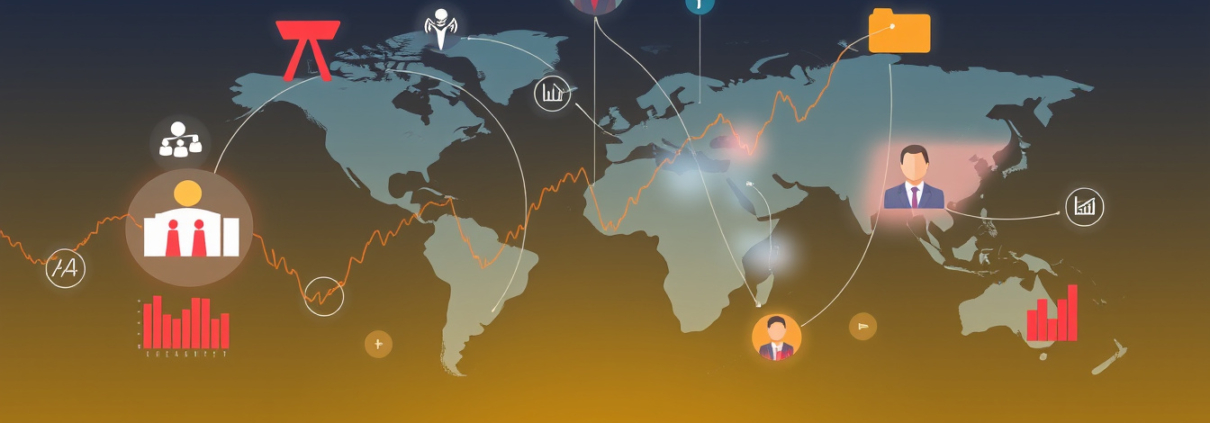๐ The Ripple Effect: How Leadership Changes Are Influencing Global Markets ๐
In recent years, global markets have felt big shifts. Changing leaders in giants like the United States and China drive these shifts. Leadership change does not stop at politics; it moves into information, technology, and economic power. This change brings short-term unrest and long-term plans that shape investment and growth around the world.
The Short-Term Impact: Consolidation of Power Over Information
Leadership change affects how information flows and how digital platforms work. In the United States, free speech now sits with a few wealthy tech leaders. A handful of people control the news flow, and their choices can block or push content. This tight control makes many feel uneasy.
In China, leaders move fast to take back control of online firms. The government, guided by the ruling party, will not let private tech bosses gain too much power. A clear sign comes out: "the party is in charge." This move has led to well-known resignations and sudden shifts in the market price of big tech firms, causing both doubt and rapid money changes.
The Long-Term Strategy: Nationalization and Controlled Capital Markets
Chinaโs leaders work to build a more regulated economic field. Global investors get a clear message: no private market can exist without the partyโs clear nod.
At a large conference with top banks like Goldman Sachs and JP Morgan, Chinese leaders said new rules will soon come. They stressed a regulated way of making money and who wins from Chinaโs growth. This step marks a deep change in who holds market power.
Demographic and Economic Challenges
China now faces a major change in its people count. By the end of the century, the population may drop from 1.2 billion to 700 million. Fewer working people may slow the economy. The old one-child law, once set to reduce pressure, now leads to too few workers and uneven gender balance, making future growth hard.
Because of this, Chinaโs leaders, under Xi Jinpingโs plan, may quicken the transfer of key sectors like technology to state control. This shift may push out chance for foreign money, making outside investments seem riskier in China.
Effects on Global Investment Perspectives
Strong government control combined with an aging population changes the view of China in global funds. Many investors now question market trust and rule consistency. Western companies and funds find it risky to put cash into a field where rules change fast. Money from local and foreign sources may be kept apart to control market sway.
Big names like Masayoshi Son (SoftBank) or Sequoia Capital might rethink their plans or pull out of China completely.
Implications for American and Western Tech Sectors
These moves may help American and Western tech groups. With fewer chances for fresh ideas in China, the U.S. scene may see more talent and new concepts. Yet, some experts note that strong local ties and well-known figures like Jack Ma have kept talent in China before.
Without clear roads to start a business or steady market access, young innovators may think twice about taking risks in China. This loss may push the growth of tech in the West even more.
Conclusion
Changes in leadership in both China and the U.S. are shifting global markets deeply. In the short run, tight control over information and political power struggles shake digital and money markets. Over time, plans for state control and firm market rules make foreign cash more uncertain. These moves change how global wealth is built and shared, with some gains for Western tech and many risks for Chinaโs future.
FAQs
Q1: Why is China controlling tech companies so tightly?
China wants to hold power over technology and news flow. It uses strict rules to keep the party at the center and stop private leaders from gaining too much strength.
Q2: How do Chinaโs population changes affect world markets?
A shrinking and aging population means fewer workers and a shift in what people buy. This may slow growth, unset supply chains, and change money plans.
Q3: Will Western investors keep putting money into China?
As rules tighten and risks grow, many Western investors are cautious or pull out. They now look for markets with clear rules and a steady promise.









